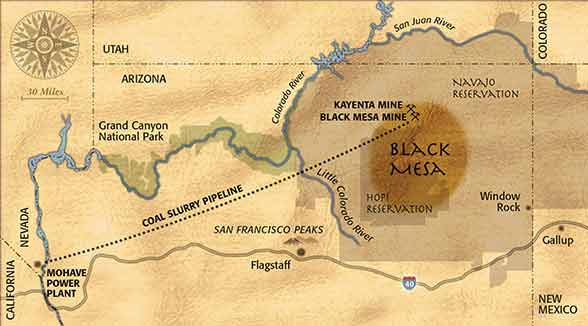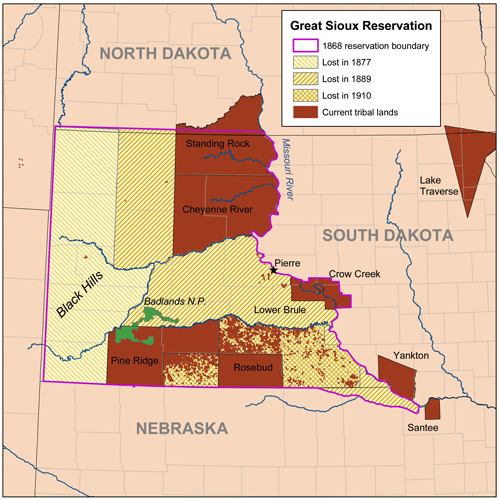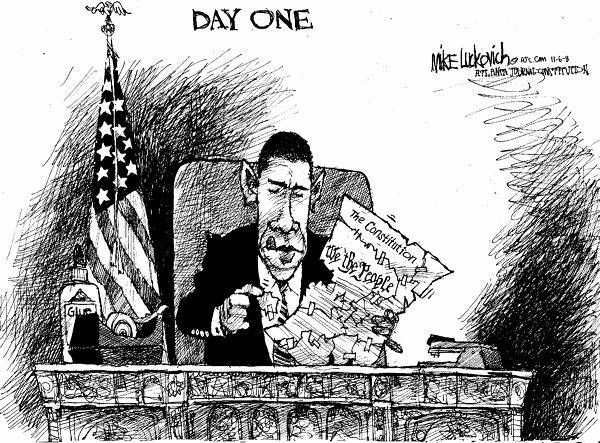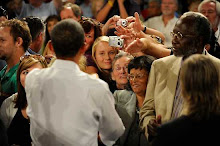Finally,
health care has moved to the Senate. But in light of partisan horn blowing over the bill’s abortion policy, we should prepare for another long debate.
Abortion, it seems, has replaced the public option controversy that for so long prevented progress in the House. Each party perceives this as an opportunity to change existing policy, which the bill would simply extend. Under current federal law, no tax dollars may be used to cover abortions except in cases of rape, incest, or when the life of the mother is threatened. Not only does the bill uphold this policy, it even includes stipulations to ensure that no private plan receiving federal subsidies may cover abortions. Republicans, however, are calling for the implementation of even stricter policy, presumably that abortion shall not be allowed under any circumstance. Democrats, on the other hand, fear that limiting the coverage of abortion will limit women’s choices of coverage in general, which is precisely what
health care reform is intended to remedy. In an interview with ABC, President Obama discounted both concerns stating, “I want to make sure that the provision that emerges meets that test — that we are not in some way sneaking in funding for abortions, but, on the other hand, that we're not restricting women's insurance choices.”
In the heat of their political squabbles, both parties have lost sight of the goal of
health care reform itself: to provide equal access to quality care. Thus, the public option proved a viable issue for debate. Abortion, however, does not. The 40 million uninsured Americans do not have time to wait for Democrats and Republicans to hash out some sort of compromise. Instead of further delaying reform, would it not be plausible to simply introduce an amendment once the bill itself has been passed? I will not deny that abortion is an important political issue. However, our representatives must realize that it is a political issue- not an issue of life and death. Countless other desperately needed policies are being strangled by these purely political concerns.
For example, the bill includes provisions to reauthorize the Indian
Health Care Improvement Act. Americans should be ashamed of the unacceptable discrepancy between access to and quality of
health care between the general population and the Native American population. The
reauthorization of the
IHCIA is the only hope for improving Native American
healthcare and, for many Native Americans, the only hope of having access satisfactory care.
Reauthorization is being prevented by abortion. An entire population is being denied access to equal care by abortion.
Our government has a responsibility to ensure that fundamental human needs are accessible to all people. Our representatives must set aside their political agendas and focus on the task at hand.
Health care reform is not about abortion.
Health care reform is about saving lives in giving American citizens peace of mind.
Just as an interesting side note- the
health care insurance companies have been exempt from federal anti-trust legislation. We’re Americans. We’re capitalists (in theory, at least). It would follow that we promote competition. Trust-busting ensures that an industry cannot monopolize consumers.
Health care insurance is not simply something you can go without when prices get too high, which means that insurance companies have been able to raise their prices without regard to the needs of consumers. The introduction of a government option provides an alternative. Alternatives create competition. Competition lowers prices and helps consumers. Furthermore, competition is the essence of the free market. Thus, a government option promotes the free market. End side note.
Obama's interview with ABC:
http://www.youtube.com/watch?v=lgBzmoo9izwFor further information from the Associate Press see:
http://news.yahoo.com/s/ap/20091109/ap_on_bi_ge/us_health_care_overhaul












 Today, the Senate Banking Committee announced a new bill that, if passed, would strip the Federal Reserve of its supervisory power and replace it with three separate agencies designed to “police banks, protect consumers, and dismantle failing institutions.” Over the past four years, the Fed has increased its regulatory powers, but, according to committee chairman Chris Dodd, it has failed- epically. And of course, the financial industry was quick to retort. Edward Yingling, president of the American Bankers Association, stated, “The bill would produce conflicts among regulators, undermine the state-chartered banking system and impose extensive new regulatory burdens on those banks that had nothing to do with creating the financial crisis.” Republican opposition has not been as staunch as anticipated, but they have expressed concerns that the bill would create unnecessary bureaucracy and make credit difficult to obtain.
Today, the Senate Banking Committee announced a new bill that, if passed, would strip the Federal Reserve of its supervisory power and replace it with three separate agencies designed to “police banks, protect consumers, and dismantle failing institutions.” Over the past four years, the Fed has increased its regulatory powers, but, according to committee chairman Chris Dodd, it has failed- epically. And of course, the financial industry was quick to retort. Edward Yingling, president of the American Bankers Association, stated, “The bill would produce conflicts among regulators, undermine the state-chartered banking system and impose extensive new regulatory burdens on those banks that had nothing to do with creating the financial crisis.” Republican opposition has not been as staunch as anticipated, but they have expressed concerns that the bill would create unnecessary bureaucracy and make credit difficult to obtain.